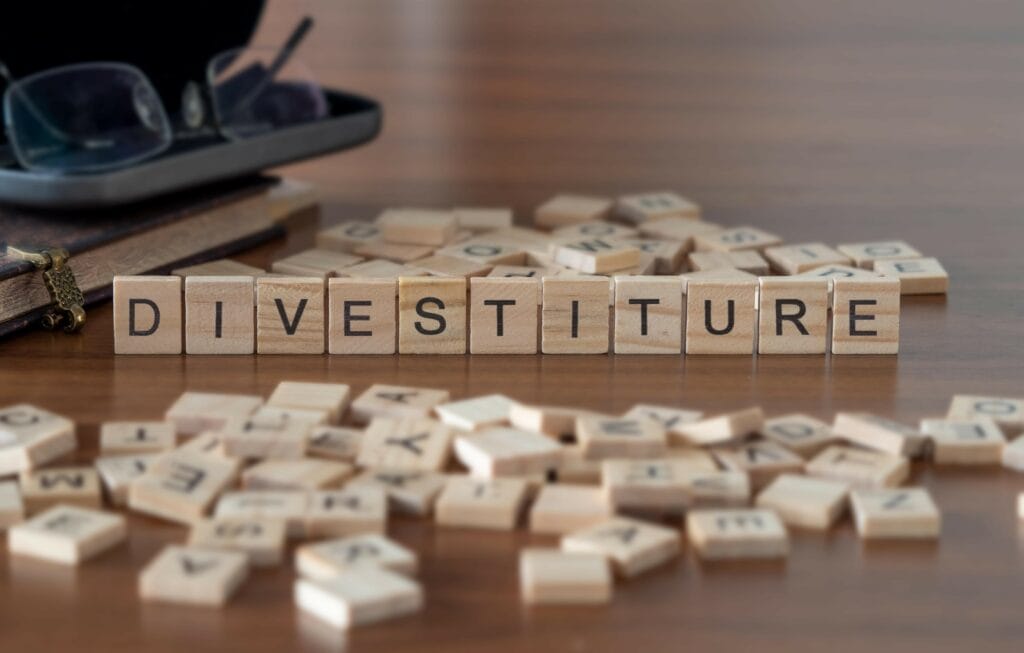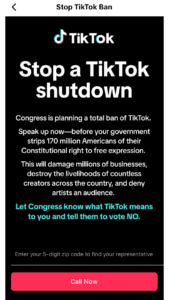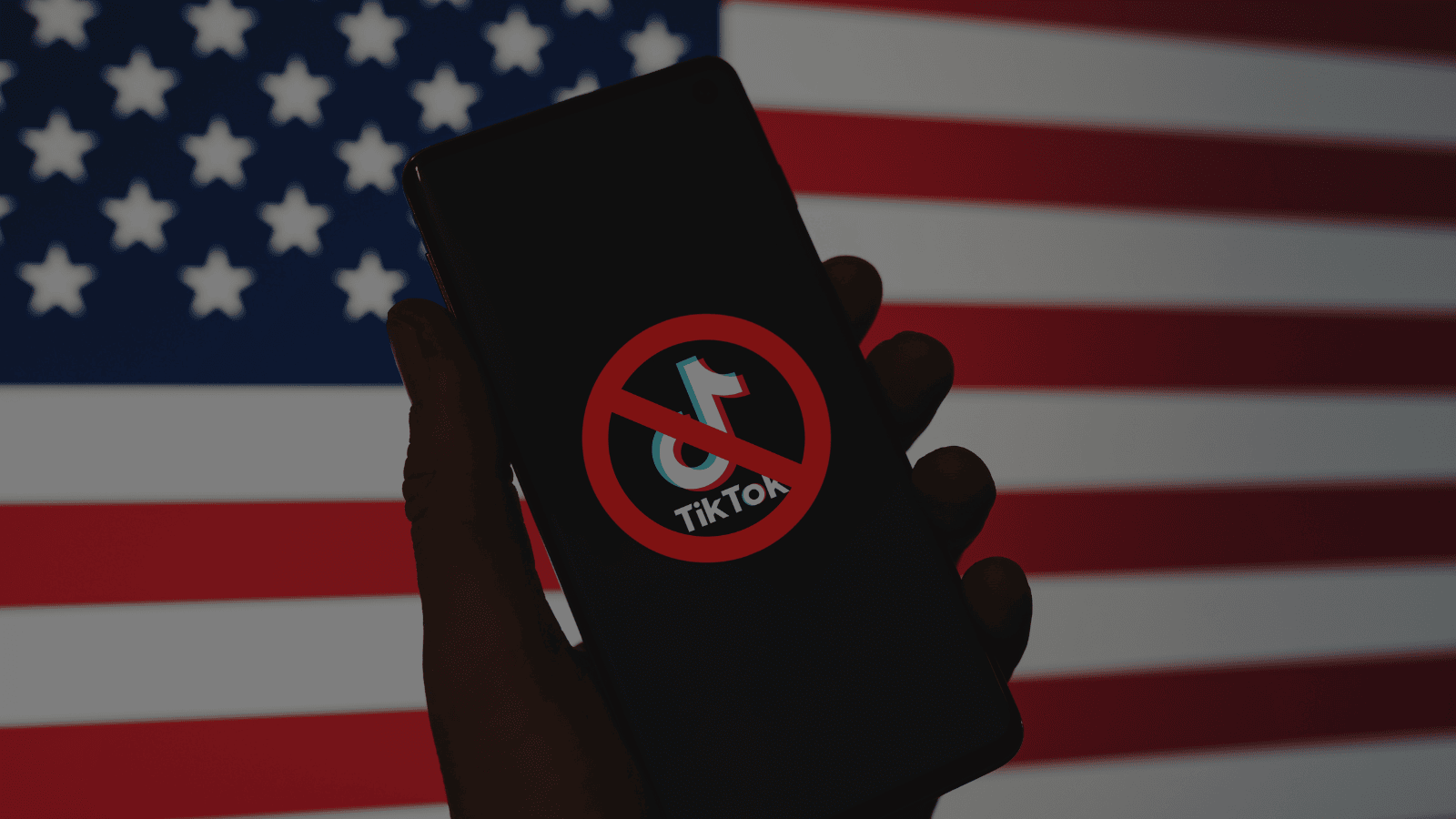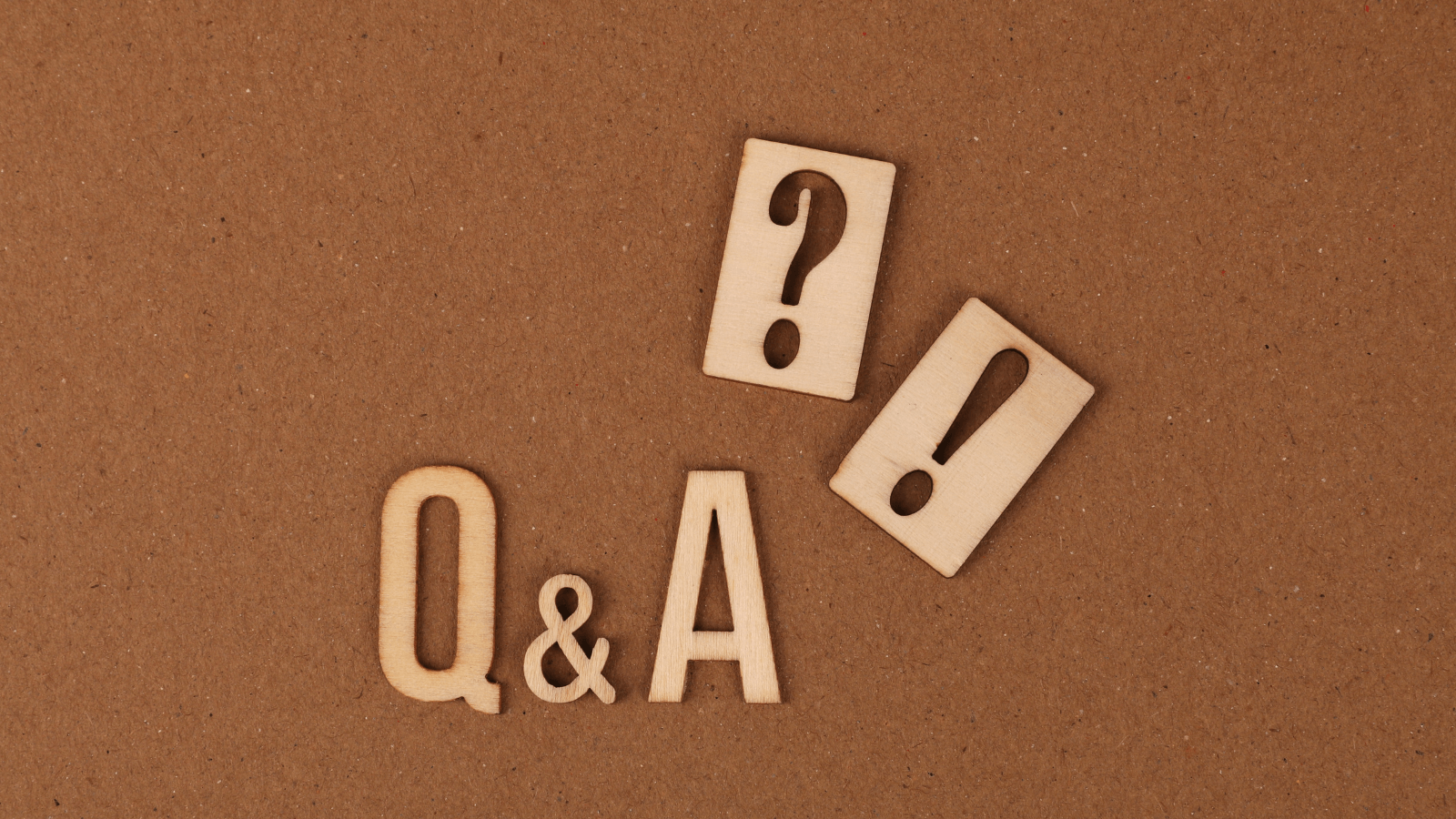The app that created the Renegade dance and chaotic Duolingo videos is now facing a potential ban as the House of Representatives passes a TikTok ban bill on March 13th in America. Members of Congress are concerned about the app’s Chinese-based owner, ByteDance, manipulating the app’s algorithm for American users to benefit the Chinese Communist Party (CCP).
But why does the House view TikTok as a threat? What does the bill entail? What would happen if the bill makes it through the Senate?
Don’t worry! We are going to break it all down for you here.
Where The TikTok Ban Bill Has Been, And Where It Is Going
On March 5, Reps. Mike Gallagher (R-WI) and Raja Krishnamoorthi (D-IL) from the House Select Committee on the CCP introduced H.R. 7521, also known as the “Protecting Americans from Foreign Adversary Controlled Applications Act.”
Two days after Krishnamoorthi and Gallagher introduced the bill, members of the House Energy and Commerce Committee unanimously voted to approve the bill.
And, by March 13th, just eight days later, the measure passed with a House vote of 352-65 votes. The bill had bipartisan support with the vast majority of representatives on both sides voting in support of the bill.
How Democrats voted:
- 155 voted “yes”
- 50 voted “no”
- 8 either did not vote or voted “present”
How Republicans voted:
- 197 votes “yes”
- 15 voted “no”
- 7 either did not vote or voted “present”
The measure is now awaiting its fate in the Senate, who does not seem to be in as much of a rush to push it along as the House. The lawmakers in the upper chamber are planning to do a thorough review before voting. Senate Majority Leader Chuck Schumer (D-NY) said he will be consulting with the relevant committee chairs to determine the TikTok bill’s path. The bill already appears to have some support in the upper chamber, however. Two lawmakers from the Senate Intelligence Committee, Marco Rubio (R-FL) and Mark Warner (D-VA), released a joint statement praising the bill, for example.
If the Senate passes the House bill, President Joe Biden has already stated that he plans to sign the bill if it comes across his desk. This decision has come under fire as Biden joined TikTok in February 2024 as part of his presidential campaign.
If the bill is signed into law, TikTok’s Beijing-based parent company, ByteDance, will have six months to divest for the video app to remain available in the United States.
If ByteDance does not divest, app stores like Google and Apple, as well as internet-hosting companies, would be barred from supporting TikTok and other ByteDance apps.

What H.R. 7521 Actually Entails
Before diving further in, it is important to break down what the bill says.
H.R. 7521 states it was created to protect the national security of the U.S. from threats of applications controlled by foreign adversarial governments. It uses TikTok as an example of one of those applications.
The bill would ban the distribution, maintenance, or update of an application labeled as being under the direct or indirect control of a foreign adversarial government. For example, although TikTok does not operate in China, it falls under the bill because its parent company, ByteDance, does. The application would also need to have users create an account to create, consume, or share content and have more than a million monthly active users. This bill does not include companies with the primary purpose of posting user-generated product reviews, business reviews, or travel information.
This act uses a definition for “foreign adversarial government” from section 4872(d)(2) of title 10, mentioning the following countries:
- The Democratic People’s Republic of North Korea
- The People’s Republic of China
- The Russian Federation
- And the Islamic Republic of Iran
Once the White House labels an application to be a national security threat, the application has 180 days to divest before the terms of the bill go into place. And, the President of the United States must approve the divestiture to prevent a ban of the application. The covered country cannot directly or indirectly own more than a 20% stake in the company.
And if the bill is violated, well, the application will have to pay a hefty fine. If users within the U.S. access, maintain, or update the application, for example, the fine is up to $5,000 per user. In regards to TikTok, with over 170 million U.S. users, this stipulation could lead to some large fines.
Why Lawmakers Are Supporting The Bill
Members of Congress who support that bill emphasize that this bill is not a ban on TikTok, but would force a separation of the app from its Chinese owner. They argue that TikTok can remain available in America if ByteDance sells.
Rep. Mike Gallagher (R-WI) says that there are classified and unclassified national security assessments that show TikTok is a threat to user data and privacy and has been used to interfere with elections. Before the House vote, all representatives received a classified briefing from intelligence and national security agencies. But, no publicly-available evidence proves the CCP is using TikTok for surveillance or propaganda purposes.
In a now-deleted TikTok video, Rep. Jeff Jackson (R-NC), a prolific TikTok user with over 2.5 million followers on the app, told his followers that he did not think that TikTok was going to be banned. He explained that the bill would force ByteDance to divest, and Americans would be able to continue to use the app. In a second video, he explains that he enjoys TikTok, but that the briefings he has been a part of raised security concerns that led him to vote “yes” to the bill.
As seen with previous TikTok ban attempts, the support for the ban stems from the potential of the Chinese government having access to American user data and the national security risks associated with that.
Why Lawmakers Are Opposing The Bill
The members of the House cite several concerns with how fast the bill went through, basing the security concerns on possibilities rather than facts, the effect the ban can have on TikTok creators and small businesses, and the infringement of free speech.
In an interview with CNN, Rep. Nancy Mace (R-SC) states that she thinks Capitol Hill is overstepping, and that it is not the place of the government to ban apps from the app store.
Rep. Ilham Omar (D-MN) took to her own TikTok account to explain her decision to vote against the measure. Omar explains that not only is she concerned about First Amendment violations, but that if the purpose of the bill is to prevent the spread of propaganda and hate, then the goal should be to set standards that all social media platforms would have to follow rather than target one app.
TikTok’s Response

TikTok has not been silent on the bill’s journey through Congress. After the bill’s introduction, users woke up to a push notification the following Thursday, lobbying for users to call their representatives and speak out against the
bill. This action, however, had the opposite effect than intended. Several lawmakers used the notification as further reason to support the bill, arguing the platform was using its influence over users to manipulate United States politics.
After the House vote, the President of TikTok, Shou Zi Chew, posted a video on the official TikTok account explaining his thoughts on the vote. He stated that the company has invested in keeping user data safe and free from outside manipulation. Shou Zi Chew also clarifies that if the bill is passed into law, it WILL lead to a ban on TikTok in the United States. He also raises concerns for the American small businesses that depend on the video app to market their business and reach consumers.
History Of Trying To Ban TikTok
This ain’t the U.S. government’s first rodeo trying to ban TikTok. There have been several attempts with varying levels of success. Here are some of the most notable attempts.
1. Donald Trump Attempts To Ban TikTok
In August of 2020, the Trump administration attempted to ban TikTok and WeChat in the United States, citing concerns about the Chinese-based owner of TikTok posing a national security threat. The social media platform had until November 12th to prove there was no threat posed. This ban would have removed these two apps from the app stores of U.S. users and prohibited updates until the apps inevitably broke.
A handful of federal judges blocked the ban in the following months, citing that the concerns for national security were posed in the theoretical, the right to due process wasn’t being observed, and that the ban infringed on the right to free speech.
But a lot has changed since 2020. Trump has come out in opposition to the current TikTok ban bill, stating that this ban knocks out a main competitor to Facebook (Meta), whom Trump claims is a threat to U.S. security.
2. TikTok Banned On Government Devices
In late 2022 and early 2023, both the United States and Canada took steps to ban the use of TikTok on mobile devices issued by the government due to concerns about privacy and cybersecurity on the Chinese-owned app.
China responded to the ban on government devices, describing it as abusing state power and suppressing foreign business.
Several other countries and governing bodies have banned TikTok on government devices, including India, Taiwan, Pakistan, Afghanistan, and the European Union.
3. Montana’s Attempt To Ban TikTok At The State Level
In May of 2023, Montana became the first state to ban TikTok at the state level. Governor Greg Gianforte says the ban is to protect the private and sensitive data of Montanans from the Chinese Communist Party.
Additionally, Gianforte directed the state’s chief information officer and executive agency directors to prohibit any social media apps tied to foreign adversaries on state equipment and for state business.
In November of 2023, a federal judge blocked the Montana’s ban before it went into effect. U.S. District Judge Donald Molloy cites concerns of overstepping state power and potential violations of the First Amendment.

What Happens If The Bill Passes
While users wait patiently to see what the Senate does with the bill, we can take some guesses on what might happen if the bill is passed.
First, looking at previous ban attempts, we can assume that this ban will go to the courts. Each TikTok ban at the federal level has been blocked by federal judges for concerns of free speech infringement and an overall lack of evidence of security threats. This scenario is likely to happen again, halting the ban’s 180-day deadline to divest until the case has subsided.
With the rough value of TikTok being at 100 billion dollars, few could actually purchase the platform. And a lot of the big names that can afford it are unlikely to purchase due to antitrust concerns. These companies include Meta, who owns Facebook and Instagram; Alphabet, who owns YouTube; and Microsoft, who is under scrutiny for their relationship with OpenAI.
But there are a few individuals who have shown interest in purchasing TikTok. Former Treasury Secretary Steven Mnuchin has reported that he is going to get an investor group together to purchase the video app if the bill passes into law. Kevin O’Leary from Shark Tank has also shown interest in the purchase of TikTok, but has expressed concern about the tight deadline.
While there is interest in a divestiture on the side of the United States, that might not be the case for China. The divestiture—and subsequent acquisition of the app by another company—would require approval by the Chinese government, who is most likely going to reject it.
A spokesperson for China’s Ministry of Foreign Affairs said that the bill is at odds with the ideas of fair competition, international trade rules, and that the phrasing could suppress excellent companies in the name of national security.
Final Thoughts
A ban or forced divestiture of a social media application at the federal level is unprecedented, so there are a lot of pieces up in the air as Americans wait to see what the Senate does in the coming months. But businesses, agencies, and social media managers alike need to prepare for every scenario. The situation is moving fast, and it is important to keep up.
Businesses on TikTok should have a plan for what to do if the bill is passed and it does not look like the application will be sold. Businesses should ask themselves the following to get a plan started:
- How will you move your following from TikTok to your other active channels?
- What platforms will the 170 million users shift to if the app is banned?
- How will you change your digital marketing strategy to accommodate the shift in channel priorities?
- What are you going to do with all your content if users still want access?
Need Help With Social Media Marketing?
Need help navigating the potential ban of a crucial channel to your business? Give us a call! As a top team of digital marketing experts, we would love to help you build a social media marketing strategy and discuss exciting ways to generate video content to help you reach and connect with your target audience.






